Green tea has always had a quiet seat at the table in my family. No fanfare, no fancy infusers—just a warm pot after dinner, poured with care and passed around like clockwork. It’s been part of my Chinese roots for as long as I can remember. But it wasn’t until I started exploring natural health more intentionally that I found myself wondering: what is in green tea that makes it so calming, so energising, so… loved across cultures?
Since ancient times, it has been revered as a healthy beverage by the Chinese and Japanese who drink it by the potful. In this post, we’ll unwrap the goodness inside your green tea—from antioxidant-rich catechins and calming L-theanine, to its gentle caffeine kick—and explore how this ancient brew supports your body, your mind, and maybe even your soul (or at least your sanity).
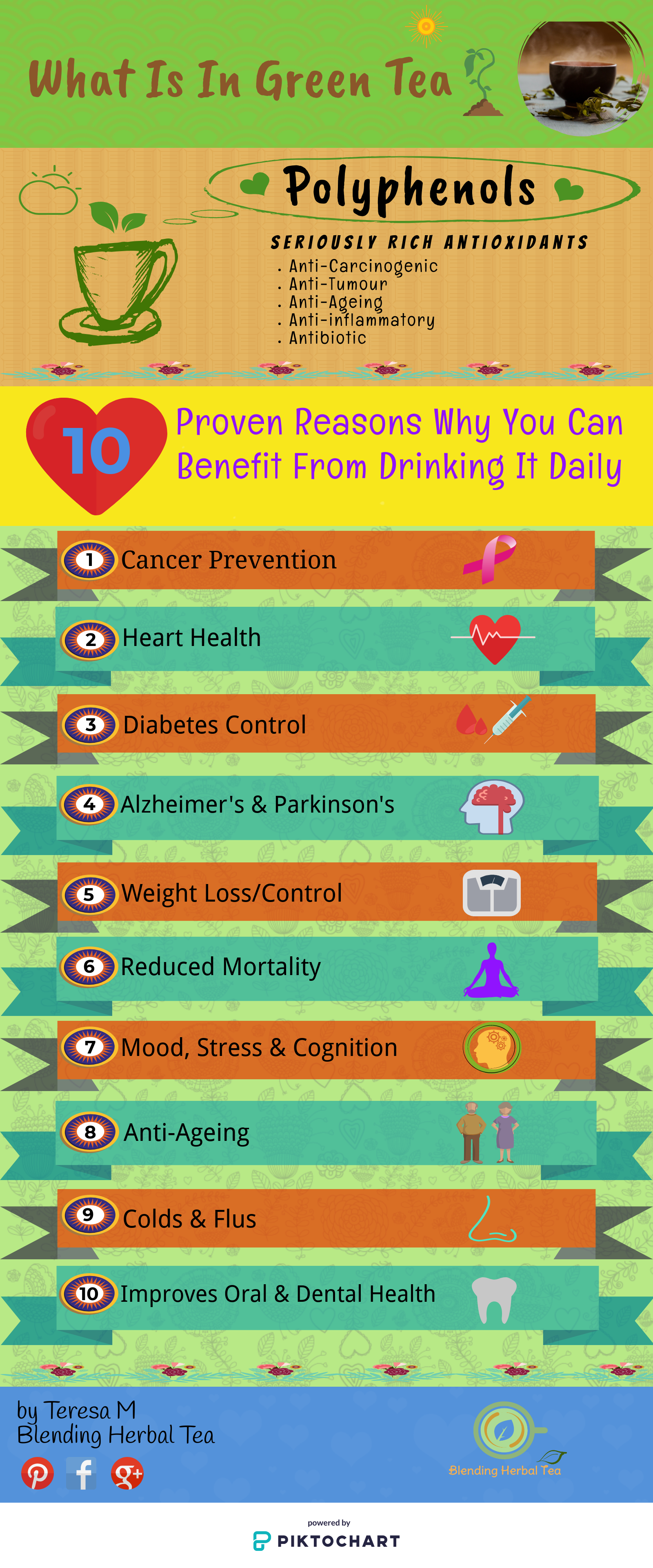

What Is In Green Tea: The Key Beneficial Compounds
The “True Teas”
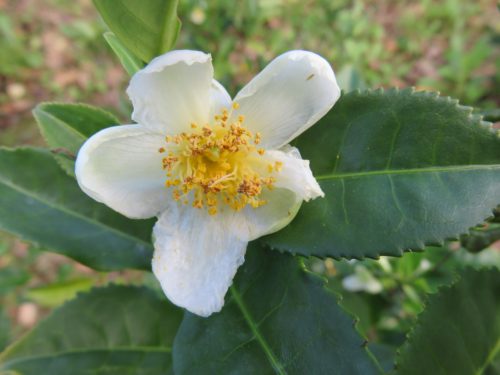
Did you know that after water, tea is the most favored beverage in the world? Hardly surprising as it’s consumed in many different parts of the world within various cultures as green, black, white, Pu-erh and oolong tea. Among all of these teas, however, the most compelling and significant effects on our health have been the studies into the consumption of green tea.
The plant that ALL real or ‘true teas’ come from is from the same plant – Camellia sinensis. Green tea, black tea, white tea and oolong tea are the most common of ‘true teas’. How it becomes green, black or oolong depends on how the leaves are processed.
Green tea leaves are picked and immediately dried by being steamed or pan-fried to prevent fermentation, whereas black or other types of teas are left to ferment which raises the levels of caffeine and tannin in the tea. It is this lack of fermentation process that gives green tea higher levels of polyphenols.
Polyphenols – Why Your Body Will Love Them
These compounds – which make up nearly 30% of the tea’s dry weight – are seriously rich in antioxidants and have been known to have strong anti-carcinogenic, anti-tumor, anti-ageing, anti-inflammatory and antibiotic properties.
 They can help prevent harmful free radicals, which basically means your cells are protected from invaders that can damage your body. Free radicals have been linked to many major illnesses including cancer, heart disease, hardening of the arteries, Alzheimer’s and Parkinson’s disease, degenerative eye diseases and even the ageing process itself. They can be found in:
They can help prevent harmful free radicals, which basically means your cells are protected from invaders that can damage your body. Free radicals have been linked to many major illnesses including cancer, heart disease, hardening of the arteries, Alzheimer’s and Parkinson’s disease, degenerative eye diseases and even the ageing process itself. They can be found in:
- fried food
- alcohol
- cigarette smoke
- pesticides
- radiation
- air pollutants
- car exhaust fumes.
Polyphenols contain flavonoids called catechins and the main one – epigallocatechin–3-gallate (EGCG) – is the most active, the most potent and the most studied polyphenol. This compound has shown some positive activity in promoting cardiovascular health, lowering the risk of heart disease and stroke, glaucoma and high cholesterol.
However, not all green tea is made equally as the composition and preparation differ from each company. An analysis by ConsumerLab.com concluded that these compounds from different products varied greatly. EGCG levels in bottled green tea ranged between 4mg per cup to 47mg whilst green tea from tea bags and loose tea contained between 25mg to 86mg per cup. Interestingly, it seemed that loose tea leaves presented the strongest levels of antioxidants.
The amount of polyphenols in green tea depends on:
- Process – (Fermented v’s Unfermented)
- Area it’s grown in
- Conditions it’s grown in (soil; climate; fertilisers)
- How the tea is prepared (temperature of the water; brew time; amount of tea used)
What Else Is In Green Tea?
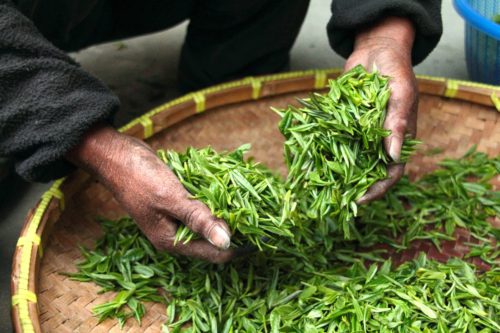 Protein – essential for every cell within the body.
Protein – essential for every cell within the body.- Caffeine – mild diuretic, stimulant and can increase stamina. More gentle on body than coffee as produces less ‘jittery effects’.
- Tannin – have anti-cancer and anti-carcinogenic properties. Is responsible for the astringency, colour and some of the flavour in the tea.
- ß-carotene (converts to Vitamin A) – essential nutrient for eye health.
- Vitamin B1 (Thiamine) – essential for normal growth and development.
- Vitamin B2 (Riboflavin) – required by the body to use oxygen and for the metabolism of amino acids, fatty acids and carbohydrates.
- Vitamin B3 (Niacin) – essential in the breakdown of fats and protein.
- Vitamin B6 – plays a key role in metabolism, brain function, healthy skin and hair.
- Vitamin C – immune booster and needed for collagen growth.
- Vitamin E – antioxidant that contributes to healthy skin.
- Vitamin K – beneficial for blood clotting.
- L-Theanine (Amino Acid) – has calming effects on the nervous system, natural stress reducer and acts to limit the stimulating effects of caffeine.
- Iron – used in the production of red blood cells and oxygen transportation.
- Magnesium – helps maintain normal nerve and muscle function.
- Manganese – aids metabolism, prevents inflammation and helps to regulate blood sugar.
- Potassium – is crucial for heart function.
- Sodium – maintains fluid balance, nerve transmission and muscular contractions.
- Fluoride – prevents teeth from tooth decay.
Traditional Medicinal Uses Of Green Tea
 Tea drinking originated in China during the time of the Qin dynasty (221BC- 206BC) and became widespread during the Han Dynasty (206BC-220AD). It’s still prized today by the Chinese who considered it one of the world’s most healthiest beverages and drinking it plays an essential part of every day life.
Tea drinking originated in China during the time of the Qin dynasty (221BC- 206BC) and became widespread during the Han Dynasty (206BC-220AD). It’s still prized today by the Chinese who considered it one of the world’s most healthiest beverages and drinking it plays an essential part of every day life.
The Chinese consider that green tea’s medicinal properties include:
- aids digestion
- stimulates the brain
- calms the nerves
- improves vision
- disposes excess fat
- strengthens the arteries
- clears phlegm
- counteracts poisons
- destroys micro-organisms
- tones the kidneys
- helps with diarrhea
How the Ingredients in Green Tea Benefit You
The Health Benefits – 10 Science-Backed Reasons Why It’s Good For You
1. Brew Some Cancer Prevention
- Green tea consumption has a reputable role and has been linked to cancer prevention including lung, colon, oesophagus, mouth, stomach, small intestine, kidney and pancreas. [Source].
- Women who drank more than 3 cups per day of green tea decreased their risk of breast cancer from recurring. [Source 1,2]
- A study in Japan suggests that green tea may be associated with a decreased risk of prostate cancer in men. [Source]
2. Heart Health
 Green tea’s antioxidant and anti-inflammatory effects work together in the body to lower blood pressure and reduce the risk of heart disease and strokes.
Green tea’s antioxidant and anti-inflammatory effects work together in the body to lower blood pressure and reduce the risk of heart disease and strokes.
- A recent study from Lancaster University and The University of Leeds have studied the positive effects of EGCG protecting against atherosclerosis. [Source]
- One Japanese study demonstrated that green tea may protect against cardiovascular disease and disorders of the liver. [Source]
3. Diabetes
- Studies have shown green tea improves lipid and glucose metabolism and prevents sudden increase in blood sugar levels and balances metabolic rate. [Source]
- The consumption of green tea is associated with a reduced risk for Type II Diabetes and has shown to have a positive effect on glucose control and insulin sensitivity. [Source 1, 2]
4. Alzheimer’s & Parkinson’s
Degenerative diseases such as Alzheimer’s and Parkinson’s are on the rise and growing evidence suggests that oxidative stress and inflammation play a vital role in neurodegenerative diseases.
- The polyphenols in green tea have been considered as therapeutic neuroprotective factors aimed in altering brain ageing processes to such diseases. The results from these studies have been very promising. [Source 1, 2, 3]
5. Weight Loss/Weight Control
 The prevalence of obesity has soared in the last few decades to alarming rates that it has become the second leading cause of preventable death in USA and that more people in the UK die from being obese and overweight than anywhere else in Europe.
The prevalence of obesity has soared in the last few decades to alarming rates that it has become the second leading cause of preventable death in USA and that more people in the UK die from being obese and overweight than anywhere else in Europe.
Green tea has had the most comprehensive research carried out that has been proven to be very effective in weight loss and weight management as it is the catechins in green tea that are responsible for boosting metabolism and burning fat.
- Several studies undertaken showed that EGCG significantly decreased body weight and significantly maintained body weight after a period. [Source 1, 2, 3,]
- A 12 week study with 115 central obese women consuming high-dose green tea extract resulted in significant weight loss and reduced waist circumference. [Source]
6. Reduced Mortality
For centuries, green tea has been consumed religiously among the Asian population, who generally have higher life expectancy and lower mortality rates for diseases that are more rampant in the West. Green tea has the ability to improve your overall health so it’s only natural that it improves your quality of life too.
- Japanese studies have shown that consuming more than 5 cups per day of green tea lived longer, especially in women. [Source 1,2]
7. Mood, Stress & Cognition
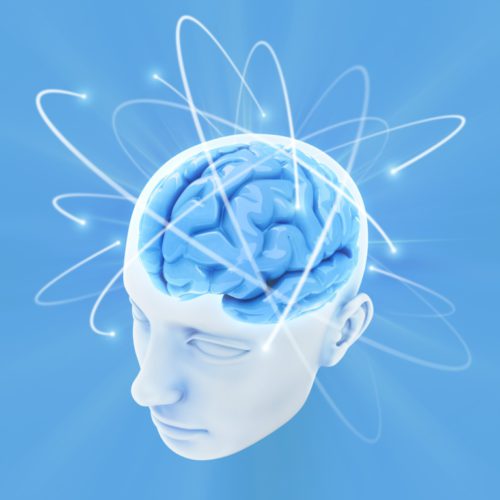 Green tea contains L-Theanine – a unique amino acid that modulates brain function in humans and acts to limit the stimulating effects of the small doses of caffeine in green tea.
Green tea contains L-Theanine – a unique amino acid that modulates brain function in humans and acts to limit the stimulating effects of the small doses of caffeine in green tea.
- Studies have shown that L-Theanine alone improved relaxation, calmness and tension without inducing drowsiness. [Source 1, 2, 3]
- A recent study concluded that frequent consumption of green tea reduced the risk of depression in Korean adults. [Source]
- A study in Singapore examined the relationship between tea drinking and cognitive function in older adults and reported better cognitive function within these groups, along with better memory and information processing speed. [Source]
8. Anti-Ageing
The rich antioxidants in green tea can help protect the skin from harmful effects of free radicals, which causes wrinkles and skin ageing.
Studies have shown that consumption of green tea protects against:
- age-dependent oxidative stress [1]
- help cells age at a much slower rate [2]
- can delay collagen ageing. [3]
9. Colds & Flu
 Studies have shown that the EGCG levels in green tea can kill bacteria and viruses directly and can:
Studies have shown that the EGCG levels in green tea can kill bacteria and viruses directly and can:
- prevent fewer cold and flu symptoms from occurring and fewer overall illness of at least 2 days duration [1]
- inhibit the influenza virus [2, 3]
- boost immunity to help fight against infection [4]
10. Improves Oral and Dental Health
- Studies have shown that the antibacterial actions in green tea is effective in preventing tooth decay, which is the most widely spread dental disease especially in the developed world due to the larger simple sugar consumption. [Source 1, 2]
- The anti-microbial effects of green tea have been shown to help prevent bad breath better than certain foods, such as chewing gum or mints. [Source]
Moderation Is Key
As with everything in life, you can have too much of a good thing – moderation is definitely key. Although one study showed that drinking more than 5 cups of green tea per day could lead to living longer, many experts say drinking between 2-4 cups per day could help to see such health benefits as mentioned above.
With no sugar, almost zero calories and can count towards your daily water intake, these are some further great reasons to swap your morning coffee or afternoon sugar-free drink for a cup of green tea to give your health a boost for the better.
The Bottom Line
 Many of the diseases or ailments mentioned such as cancer, diabetes, obesity, stress, Alzheimer’s and Parkinson’s are increasingly soaring higher especially in the West. We are privileged to be living in one of the richest nations on Earth, yet we are considered one of the sickest and this could be due to our ‘lifestyle’ choices:
Many of the diseases or ailments mentioned such as cancer, diabetes, obesity, stress, Alzheimer’s and Parkinson’s are increasingly soaring higher especially in the West. We are privileged to be living in one of the richest nations on Earth, yet we are considered one of the sickest and this could be due to our ‘lifestyle’ choices:
- Diets rich in processed sugars, flours and fats along with farming methods that has depleted our soils and is full of pesticides, herbicides and GMO’s.
- Sedentary and stressful lifestyles
- Pollutants in the environment
- A staggering array of vaccinations
- Increase in smoking, alcohol and drugs
Although the studies have shown that green tea can help boost your general health and prevent certain diseases from prevailing, it shouldn’t be relied on solely to achieve these purposes.
A good balanced and organic diet – free from processed sugars, fats, flours and oils; regular exercise; positive emotional health; adequate rest; less high-tech gizmos omitting radiation and a relatively low-stress lifestyle are needed to keep our health in top-notch and prevent you from becoming a statistic.
Steeping the Final Thoughts
Green tea is not just a beverage but a powerhouse of health benefits, supported by scientific research and centuries of traditional use. Its rich polyphenol content, especially EGCG, contributes to its antioxidant, anti-inflammatory, and anti-carcinogenic properties.
Regular consumption has been linked to reduced risks of chronic diseases, including cancer, cardiovascular diseases, and neurodegenerative conditions like Alzheimer’s and Parkinson’s. Additionally, green tea supports weight management, improves mental clarity, reduces stress, and boosts immunity. Nutrient-dense with essential vitamins, minerals, and amino acids, it provides a natural, holistic approach to wellness.
While moderation is key, incorporating 2-4 cups of green tea into your daily routine can yield significant health benefits. Ultimately, green tea serves as a reminder that small, mindful habits can make a big difference in achieving a healthier lifestyle.
KEY POINTS
- Green Tea’s Main Beneficial Compounds: Green tea contains antioxidants like catechins and the neurocalming amino acid L-theanine, which contribute to its health-boosting effects and calming properties.
- Health Benefits of Polyphenols in Green Tea: Polyphenols in green tea, especially EGCG, have strong antioxidant and anti-inflammatory properties that may prevent cancer, heart disease, and support overall health.
- Traditional Use and Medicinal Properties of Green Tea: Originating in China, green tea has been used for centuries to aid digestion, stimulate the brain, improve vision, strengthen arteries, and combat poisons and microbes.
- Science-Backed Reasons to Drink Green Tea: Regular consumption of green tea can help prevent cancer, improve heart health, aid weight loss, manage diabetes, and support brain health and aging.
- Moderation and Lifestyle Tips for Optimal Benefits: While green tea offers numerous health benefits, consuming 2-4 cups daily in moderation, combined with a balanced diet and healthy lifestyle, maximizes its positive impact.
Do you drink green tea? How often do you drink it? Did you realise it had so many health benefits? I hope you enjoyed the read and would love to hear your thoughts, comments and experiences on green tea. Thanks for reading and if you found the post helpful, please share!
Peace & blessings
Teresa
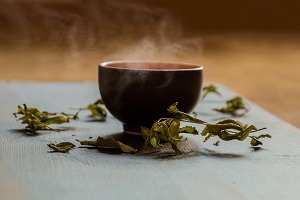

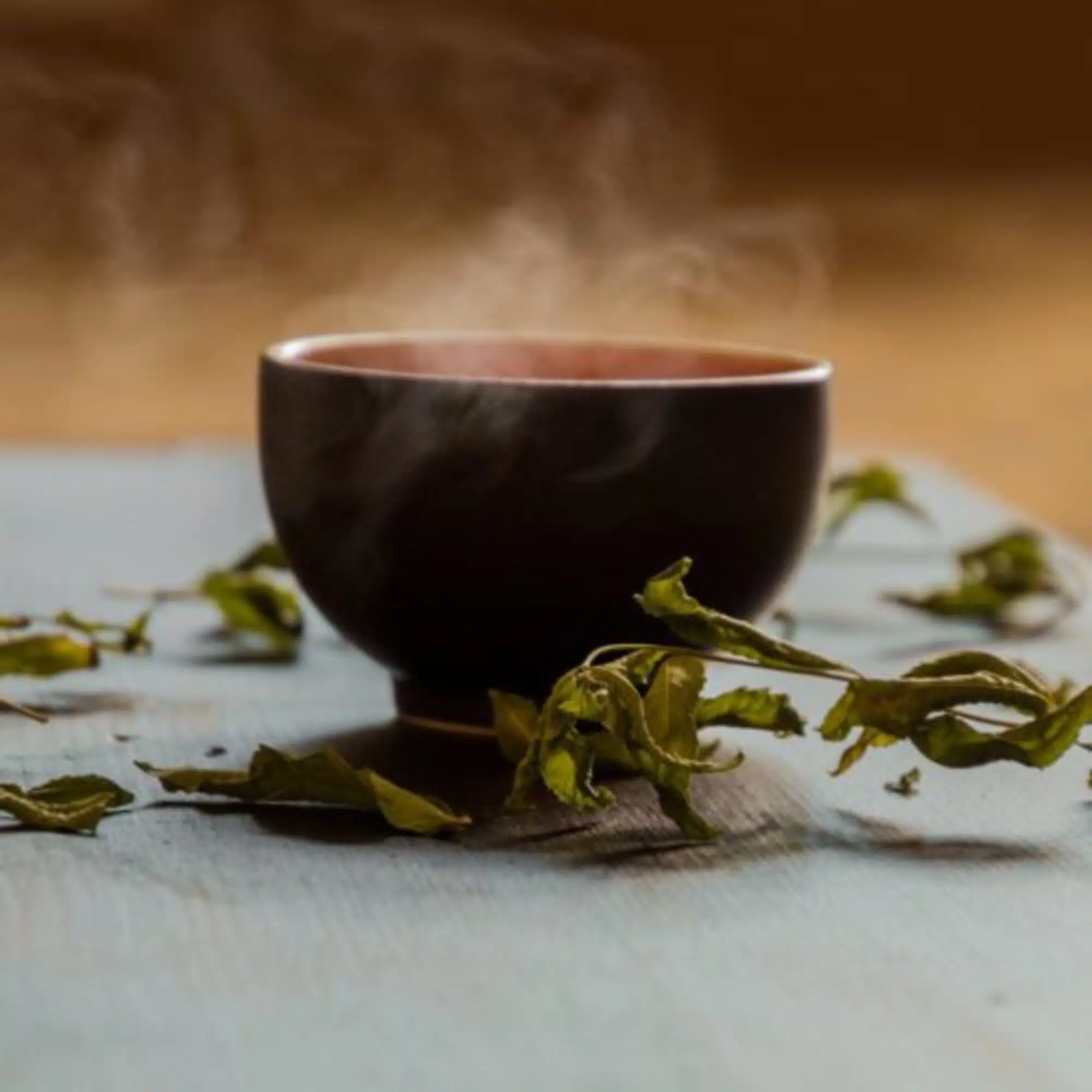

Green tea is my go-to tea to drink! I usually drink the ones where jasmine is mixed into it. Do you think having jasmine in the tea undermines the health effects it has? I initially started drinking green tea because I read about its weight loss benefits, but I’m glad to learn that there are more benefits that come along with it! I won’t be stopping my green tea drinking ways anytime soon.
Hey Krystlezee
I like to add Jasmine to my green tea at times as the fragrance is so lovely. Jasmine flowers have their own unique health benefits like all other plants and I’m sure that it will not lessen the health benefits of green tea when added. If any, you’ll have additional health benefits!
Glad you enjoyed the post and I wish you a pleasant week ahead
Peace be with you
Teresa
I drink Pu-erh tea and thought that I would be getting the same benefits of green tea but your article has dispelled that notion since Pu-erh is definitely a fermented tea. I will definitely be switching to green tea as I do have it in the the house. L-Theanine and Magnesium definitely help with anxiety and depression so I will give it a try. I’ve been trying to find out this type of information on Pu-erh vs Green tea and couldn’t find it before. Thank you so much!
Hi Feochadan
Although Pu-erh tea and Green tea come from the same plant, what makes them different is the way the leaves are processed and dried.
Pu-erh teas are aged and fermented, giving it a richer flavour (just like wine). Green tea does contain more levels of polyphenols due to this lack of fermentation process but that does not mean that Pu-erh tea lacks any health benefits – just less potent than green tea.
Thanks for sharing your comments and peace be with you
Teresa
Wow! I have been a lover of green tea from when I was in college but I have never had enough time to go through how it is been made or all the nutrients contain therein. Green tea is a really healthy tea that has a loot of healing features and health boosting nutrients. I feel proud of been a constant lover of green tea and would surely not stop taking it. I haven’t just learnt how I can benefit but ways to keep benefiting. Thanks for the great review.
Hey Willy
You’re most welcome and happy to hear you’re a fan of green tea. Do you normally have your tea loose or bagged? Some research shows that loose leaves provide the strongest levels of antioxidants. So if you want extra health boost, go for loose!
Happy brewing and peace be with you
Teresa
Hello Teresa, am so glad that I found about the different types of teas and how i can actually make a simple one with the ingredients you showed above. well, I knew almost everything about green tea except for it being anti-ageing. I personally have a problem with looking older than my age. Am 24 but when i tell people, they say I look 28. If this green tea can help with that then i will absolutely start taking it.
Thank you so much for the detailed information. It’s great
Hey there Brendah
You’re so welcome and glad you found useful. I was pleasantly surprised too about the anti-ageing benefits of green tea when I was researching. It did make me wonder why many members of my family do actually look younger than they really are!
I wish you well in your quest to look younger and hope you return to let me know.
In good health and peace be with you
Teresa
I never knew green tea can be so beneficial to ones health. I have often given it little regards since I got to know about it. But seeing these benefit is really surprising. The aspects of stress and weight loss is one I’m very much interested in. I get so stressed at work lately and it causes headache for me alot. Also I have want to lose weight but I’m being too lazy to work out, so I would just go with taking green tea to help deal with these issues. Thanks for sharing.
Hey Dane
Thanks for your comments.
The health benefits of green tea are really amazing but they shouldn’t be relied on solely in dealing with your current issues. Just drinking green tea to help lose weight because one is too lazy to do exercise is not really recommended.
Unfortunately, there is no magic pill or potion that can shed the weight without much effort on your part. The keyword here is ‘helping‘ to aid body weight and maintain a healthier body.
The mantra of regular exercise, a balanced diet and cutting down on stress maybe hard work to fight the battle of the bulge but at least it wouldn’t jeopardise your health in the long run.
If you’re interested in losing weight with the help of herbs, please read my post Do Herbs That Help Weight Loss Really Work?
Have a lovely week ahead and peace be with you
Teresa
I did wonder why the Asians like taking tea so much especially the Chinese. They do this because of the many benefits that can be gotten from tea. While we are busy drinking beer which is detrimental to our health the Chinese are taking tea which is making them live healthy lives. So much benefits that a lot of people are currently now realizing tea offers. No wonder this business has started growing even in continents outside Asia.
Hey Jay
Yes, the Chinese do love their tea – it’s not a surprise since tea was discovered there around 2737BC. Legend has it that it was discovered accidentally by the Chinese Emperor Shen Nung, when leaves from the camellia sinensis plant landed in his pot of hot water.
Tea is certainly big business still and you’re right in saying that it has grown outside of Asia. Africa is the newest kid on the block to start growing tea. Kenya is Africa’s largest producer of tea and is the third largest producer in the world after China and India.
Tea has had a really fascinating past and I’ve written an article Journey Into A History On Tea – A Surprising Tale Of Adventure And Intrigue” if you would like to learn more.
Thanks for reading and peace be with you.
Teresa
I love green tea, actually teas in general. I learnt to love it from my dad and he from his.
Do you think if green tea mixed with sugar and milk is still healthy? Does it lose any of it’s nutrient and vitamins? I know this may sound like an obvious question.
But I just wanted to know for sure. Because I always put milk and sugar in mine.
Hi Isaac
That’s a really good question and I guess it’s down to personal preference really.
Refined sugar and artificial sweeteners can destroy the healing potential and properties of the tea. Perhaps adding honey will help as it’s a natural sweetener as well as having antibacterial, antioxidant and anti-fungal properties that works well with maintaining the health and harmony of your body.
Milk will alter the taste of the tea as well as reduce the beneficial effects of the catechins as this study shows.
Hope this answers your query.
Stay happy and healthy and peace be with you.
Teresa
Hi Teresa,
I used to work in Japan and I have to say their Sencha tastes amazing especially when you drink it with your lunch like Sushi. I love it. I know that they have many benefits but didn’t realize that the list is endless. My favorite green tea styles are Sencha, Genmai Cha, and Matcha. I went to the tea ceremony one and it was priceless. I love the bitterness of the tea combine it together with Japanese sweets 🙂 I am drinking green tea everyday. My favorite brand is Itosen but sometimes it is so hard to find it so I sometimes drink the Trader Joe’s one as well. It’s not that bad 🙂
Hey Nuttanee
I absolutely love the Genmaicha teas as the brown rice is so fragrant and uplifting – and how blessed you are to have witnessed a tea ceremony over there too! Japan is one country on my ‘to visit before you die’ list!
So happy to hear you have green tea daily – your body will appreciate this. Happy brewing and thanks for visiting.
Have a great week and peace be with you.
Teresa
Hi Teresa, thank you for a great post. I have always heard that green tea is good for the body and I drink one cup in the morning with breakfast. Reading your article shows that it has many great benefits and I may only be halfway along the road to better health. I think I am going to consume about 3 cups a day, so I can manifest the benefits of weight loss, and prevent some of those diseases that I definitely don’t wish to have. Does it interfere with the ability to sleep? I need to know so i can schedule my 3 cups.
Hey JJ
Great to know you have green tea in your daily diet. The caffeine content is a hot topic with green tea as many of my readers have asked about this.
I will leave my last response to my last reader who wanted to know about the caffeine content…
8oz (230ml) serving – green tea between 30-50mg caffeine
– coffee between 102-200mg caffeine
– energy drinks between 72-80mg caffeine
– soft drinks between 23- 37mg caffeine [Source ]
The amount of caffeine in green tea will vary dependant on the type of green tea (whether bagged or loose) and how you prepare it.
L-theanine, the amino acid present in green tea works to offset the simulating effects of caffeine and has been shown to produce calming effects on the nervous system and is a natural stress reducer. The caffeine in green tea creates a more gentler and regular stimulation that can help cognitive function and improves relaxation, calmness and tension without causing drowsiness.
This amino acid is the beauty of green tea which makes it more gentler on the body than coffee as it produces less jittery effects.
I drink about 2-3 cups per day and especially after my evening meal. If you’re looking to lose weight, then some studies like this one shows that drinking green tea before a workout can increase metabolism which helps to burn fat and calories.
I’ve written an article “Do Herbs That Help Weight Loss Really Work?” here which I hope may help further.
Hope this helps and let me know if you have any other questions.
Peace be with you and have a great week
Teresa
I was really surprised to see that this form of tea contains both Vitamin B and magnesium – two supplements I tend to pay for through the nose every month!!! Pretty sure that drinking green tea would be a lot cheaper than buying these supplements.
The one concern I have with this form of tea is the actual caffiene content – how high is it compared to regular coffees and caffeine drinks?
Hey Chris
Happy to connect with you again and thanks for your question.
The caffeine in green tea is much less compared to coffee and energy drinks –
8oz (230ml) serving – green tea between 30-50mg caffeine
– coffee between 102-200mg caffeine
– energy drinks between 72-80mg caffeine
– soft drinks between 23- 37mg caffeine [Source ]
The amount of caffeine in green tea will vary dependant on the type of green tea (whether bagged or loose) and how you prepare it.
L-theanine, the amino acid present in green tea works to offset the simulating effects of caffeine and has been shown to produce calming effects on the nervous system and is a natural stress reducer. The caffeine in green tea creates a more gentler and regular stimulation that can help cognitive function and improves relaxation, calmness and tension without causing drowsiness.
Hope this answers your question. Take care and peace be with you.
Teresa
Wow! What an incredible post you’ve put together on green tea! I had no idea that green tea and black tea were from the same plant but with different processing, and nor did I have any idea about all the different vitamins that green tea has to offer. I absolutely love green tea, but I honestly haven’t drank it for quite some time. Now that I have given up coffee, it might be a good time to start drinking it again!
Hi Josie
Thanks for your positive vibes! Really happy you found the post informative and hope you incorporate green tea in your daily diet again.
It’s a wonder that the Chinese drink this as an essential part of their every day life. Growing up, my family would drink it day and night, especially after a meal to ease digestion and ‘cut the grease’ in oily foods!
Happy brewing and peace be with you
Teresa
My father is currently under therapy as a stroke has rendered half of his body immovable and also affected his speech. He can eat and drink water but cannot talk clearly.
Looking at the ingredients or the nutrients found in green tea and the list of benefits we can get from drinking tea, I wonder if, can this be used in regenerating brain cells? His CT Scan and MRI results revealed there’s a massive volume loss of brain cells due to the infarction, the brain is shrinking… Can someone at the age of 71 be able to regenerate brain cells drinking green tea? Also, is the caffeine level in green tea safe for a patient like him?
Hi Gomer
Sorry to hear about your father and his condition. There have been some interesting studies into the consumption of green tea and stroke prevention which are listed here:
https://www.jstage.jst.go.jp/article/tjem1920/157/4/157_4_337/_article/-char/ja/
https://www.ahajournals.org/doi/full/10.1161/STROKEAHA.108.538470
https://www.ahajournals.org/doi/full/10.1161/STROKEAHA.111.677500
https://www.medscimonit.com/abstract/index/idArt/473723/act/3
https://www.sciencedirect.com/science/article/pii/S0965229906000744
Green tea contains L-theanine which is an amino acid that has calming effects on the nervous system, is a natural stress reducer and acts to limit the stimulating effects of caffeine.
Also, not all green teas are made equally as the composition and preparation differ from each company. It’s best to use loose tea leaf from a reputable source preferably that has been grown organically and not just a cheap teabag version from the local supermarket.
I hope this information helps and I wish you well and your father a speedy recovery.
In good health and peace be with you
Teresa
Hi
I am always confused when I hear about green tea, because sometimes it includes also other plants consumed as tea. Like rosemary tea, camomile tea, hibiscus tea and others, do you also include them too? Or is this just about the green tea in the original sens?
I like your post it is very helpful. Especially the list of all the vitamins that we get from it. Our body need those vitamins and green tea is one of the easiest way to get them.
Thanks
Hi Adyns68
Thanks for your question – green tea along with black tea, oolong tea, white tea and yellow tea all are known as ‘the true teas’ and all come from the same plant – camellia sinensis.
Plants such as rosemary, chamomile and hibiscus are classed as ‘herbal teas’ and have their own unique healing properties and actions. I have written a post “What Is Herbal Tea?” here which I hope will help you shed some light.
Personally, when I make green tea I would brew it as it is and maybe add some mint to aid digestion. I wouldn’t add other herbs to green tea as the brewing and steeping times are different for herbal teas and green teas.
Hope this answers your question and let me know if you have any more queries. I’d be happy to help!
Stay happy and healthy and peace be with you
Teresa
Great post! Love green tea and the benefits. Thanks for the background on green tea, had no idea that the color was determined by leaf processing! Information on the process for making green tea was interesting. And you really wrapped in back all together with polyphenols. Keep up the good work!
HI Pentrental
Glad you found the post useful! Happy brewing and peace be with you.
Teresa
Dear Teresa,
To be honest heard a lot of information about green tea but never tried it. Finally I thought of giving it a try so I did some research online and your post is a time saver with loads of valuable information. I thoroughly appreciate the research you must have done to gather and compile so much information.
Information on Polyphenols is an eye-opener for me and looking at the content, health benefits and Medicinal use of green tea I am really amazed. After reading your helpful and informative post green tea is on my list and its a must.
Great information, you have really given a lot of value here.
Much Success!
Paul
Hi Paul
Great to connect with you again and really appreciate your comments. The Chinese have been drinking this for centuries and growing up in my household, we always had green tea with our meals. My folks would drink it throughout the day too.
I hope you give green tea a try and see the benefits. I will be writing a post soon on how to make it and what to look for when buying. Stay tuned!
Peace be with you and have a lovely weekend
Teresa
Wow, look at all the health benefits that are listed! My mother would love this post because she swears by green tea. Anytime I feel bad or dealing with sickness, she tells me to drink green tea. I was surprised to see that consumption of green tea counts toward water intake add the health benefits, green tea should be consumed daily.
Hey Lee
You’re mother certainly knows a thing or two! Green tea’s rich antioxidant levels are very beneficial to the immune system in fighting infection. Glad you enjoyed the read and hope you get to incorporate green tea in your daily diet.
Have a chilled weekend and peace be with you
Teresa
I love Green Tea, although I don’t drink it as much as I used to. I was on a kick a few years back, drinking 1-2 cups per day. I can’t remember how I felt drinking it, but generally speaking I know I felt good, if that makes sense. But I do think if people drink it for health reasons, then they should do their best to eat healthy/normal too.
Hi Nate
Yes, unfortunately people believe that there is some magic pill, lotion or drink that can make you thin or healthy without much effort on their part. Incorporating green tea in your daily diet can help to prevent certain ailments and boost your general health but certainly doesn’t cure it!
Thanks for reading and peace be with you.
Teresa
Hi Teresa! This post is worth sharing! Just the fact it’s rich in antioxidants has made me make up my mind to incorporate green tea into my daily routine.
I have started a diet and exercise program since this year began. And am happy with the results. And this encourages me to constantly research for additional things to boost my general health. Thank you very much for mentioning green tea!
Hi Henry
Glad to hear this and wish you well in your journey of renewed health and well being. Staying positive keeps you motivated!
In good health and peace be with you
Teresa
I love the discussion of polyphenols on different blogs. Your body truly does love them; I can say that from experience! Very ironic that I am writing this comment while sipping on any very own cup of green tea. It truly is a miracle drink that I can’t really go a day without.
Thank you for sharing this value with the web. All the best!
Ben Kuriger
Hi Ben
You’re so welcome – Lovely to hear you drinking your green tea! I have to drink it twice daily at least!
Thanks for popping by and peace be with you.
Teresa